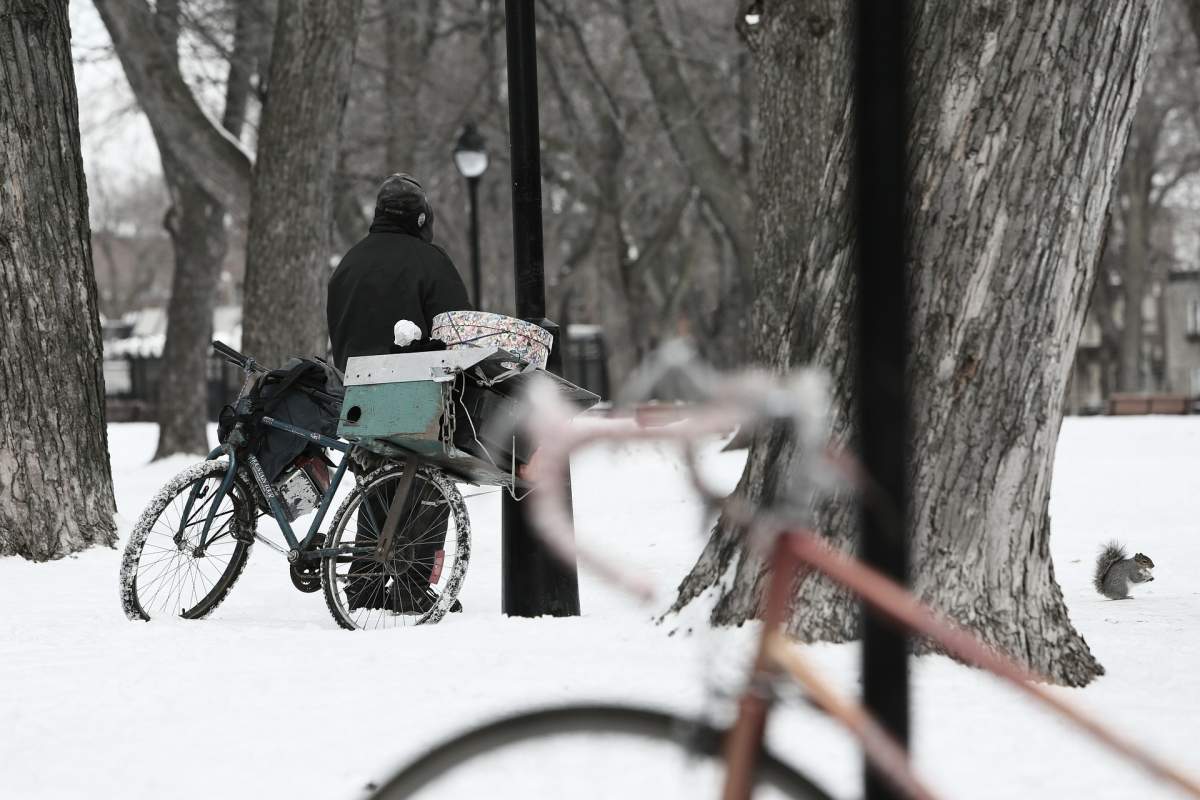Winnipeg city hall is looking at a proposal on Monday afternoon that would create more 24-7 safe spaces for marginalized groups in the city.

An advocacy group for homeless people is encouraging the city to boost the number of round-the-clock spaces, saying the current shelters only provide emergency support.
Lissie Rappaport, housing access manager for End Homelessness Winnipeg, told 680 CJOB most shelters only provide limited access, and many Winnipeggers are in need of a resource that’s available at all hours — whether they need it at 2 p.m. or 2 a.m.
“A safe space is a place where people can go that is free of bias, but it also addresses immediate needs for shelter, whether it’s a warming centre from the cold, access to meals and also access to services like culturally relevant services, mental health or support staff,” she said.
“There’s emergency shelters overnight, but in the morning, they have to leave and then come back, and there are daytime drop-in centres.”

Get breaking National news
Rappaport said there’s currently only one truly 24-hour shelter in the city — the youth centre Tina’s Safe Haven. Adding more round-the-clock safe spaces would benefit certain populations in need, she says.
End Homelessness Winnipeg’s 2019 safe spaces report, submitted to the city in September, identified five specific at-risk populations: women, people who use drugs, youth, members of the LGBTQ2 community and sexually exploited girls and women.
The report is based on recommendations from June’s illicit drug task force report, a project that involved representatives of all levels of government, police, medical professionals, addictions experts and more.
“There is a need for expanded services for individuals (including youth) who use substances, both in Winnipeg and across the province, that offer safe environments and foster positive relationships in neighbourhoods where they are most needed,” read the report, which recommended efforts be undertaken to create safe spaces with longer hours, ideally 24-7.
Rappaport said while there are safe spaces that can serve an overlap of the five at-risk populations, she’d ideally like to see a few separate centres geared toward specific groups with 24-hour access.
“We’ve also identified in the report the importance for the services to be either conducted by an Indigenous organization or to be Indigenous-led services because there’s really a lack of culturally appropriate staff and services in the city of Winnipeg,” she said.













Comments
Want to discuss? Please read our Commenting Policy first.